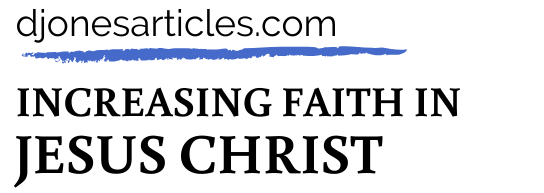A recent international study indicated that more young people than ever before are declaring themselves atheists. These individuals think that belief in God doesn’t make a difference when it comes to being a good, moral, and ethical person. (Christine Tamir and others, “The Global God Divide,” Pew Research Center, July 20, 2020, pewresearch.org.). God has given us the freedom to believe in Him or not, but it’s not correct to say it doesn’t make a difference. Our belief in God affects how we see ourselves and how we see and treat others. Studies show that in times of trouble and crisis, believers cope much better than nonbelievers. (Jacqueline Ruth Mickley and others, “God and the Search for Meaning among Hospice Caregivers,” Hospice Journal, vol. 13, no. 4 (1998), 1)
Believers are happier and more willing to donate to charity. (Pew Research Center, “Religion’s Relationship to Happiness, Civic Engagement and Health Around the World,” Jan. 31, 2019, pewforum.org; Arthur C. Brooks, “Religious Faith and Charitable Giving,” Policy Review, Oct. 1, 2003, hoover.org.)
During the pandemic, people struggled to find peace and meaning in a time of great isolation and disruption. Believers felt a hope and optimism others did not. (Mei-Chung Chang and others, “The Effect of Religion on Psychological Resilience in Healthcare Workers during the Coronavirus Disease 2019 Pandemic,” Frontiers in Psychology, vol. 12 (Mar. 2021), frontiersin.org.)
Brett G. Scharffs is a law professor at Brigham Young University. When some of his colleagues at other universities find out he is a devout believer, they sometimes ask, “But what if you are wrong and God does not exist?” He responds: “I am willing to be wrong in this way if it means believing and treating others as though they are children of God, created in His image with the potential to become beings like unto a perfect and perfectly loving God. I would rather make the mistake of attributing meaning and love to a universe that is meaningless and indifferent than vice versa. And besides, I do not think we are wrong.” (Brett G. Scharffs Speech at BYU forum address, Oct. 18, 2016), 12, note 19, speeches.byu.edu.)
Some Believe in God But Not Organized Religion
Many people believe in God but not organized religion. They say, “I’m spiritual, not religious.” Typically that means they acknowledge God’s existence but do not want Him to ask anything of them, give them any commandments, or expect them to make any changes. Jeffrey R. Holland has taught that spirituality—an individualized experience—might be all we would need if we lived alone on mountaintops, but we live in families, communities, societies. That’s why we need religion—the group practice of spirituality. (Jeffrey R. Holland, “Religion: Bound by Loving Ties” (BYU devotional, Aug. 16, 2016), 2, speeches.byu.edu)
Some people see no need for organized religion, and yet they demand organized schools, cities, stores, airports, and hospitals. They see the benefits of going to an organized hospital, where there are rules or expectations. We see the same benefits in our organized Church. Being part of this organized religion blesses us and those we love in every aspect of our lives. Because the Church is organized, we can care for others more effectively together than we could ever do individually.
Believe in Organized Religion but not in Jesus Christ
Some people believe in God and belong to organized religions, but they don’t have faith in Jesus Christ. Neil L. Andersen reported in the October 2020 general conference of the Church that in the coming decades, more are predicted to leave Christianity than enter it. (Neil L. Andersen, “We Talk of Christ,” Liahona, Nov. 2020, 88.)
It is common to see social media posts degrading Christ and Christians. Will we turn our backs on the Savior because following Him is no longer popular? Will we refuse to raise the Christian flag because it makes us targets?
Jesus Christ is the Savior of the world. He said, “Blessed are ye, when men shall revile you, and persecute you, and shall say all manner of evil against you falsely, for my sake”. (Matthew 5: 11 in the Bible)
My Testimony
I have had a lifetime of believing in God, my Heavenly Father, and His Beloved Son Jesus Christ, the Savior of the world. I have tried to keep the Savior’s commandments to the best of my ability (though I made many mistakes that repentance was necessary). I have a very strong testimony that they exist, love us and will help us fight through the challenges of life. I have received many answers to my prayers, felt their love and experienced the magnificent power of the Spirit in times of need. I am very excited about the Plan of Happiness they have for us.
Quoted part of the article by Bradley R. Wilcox “Get in The Lifeboat – Finding Safety in the Church” Liahona Magazine, September, 2021.
